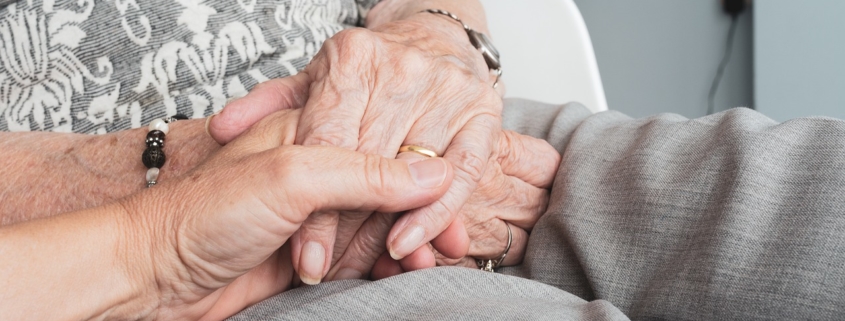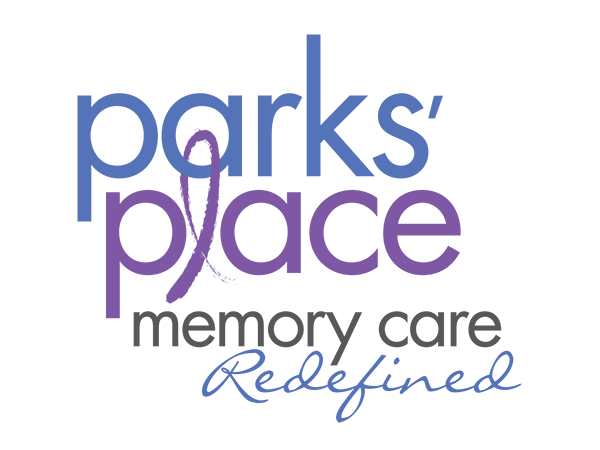When Jerry Parks was diagnosed at age 56 with young onset Alzheimer’s disease (AD) his family started to search for support groups. Moreover, not just a general group, but groups specific to their situations. His wife, Karen, searched for a support group for spouses of people diagnosed with young onset. His daughter, Katie, looked for a support group of others who were the children of a person with young onset. What they both found was there wasn’t a support group that fit their respective category. This dearth of support sparked them to create their own groups for others like them.

Karen’s Search
Karen wanted to connect with others who were facing the same challenges as her. Jerry’s diagnosis at age 56 was at a very different stage of life than someone diagnosed at age 86. Jerry was at the height of his career and they had children who were still in their teens; Karen desperately needed to connect with someone who was facing the same situation and feeling the same losses as her.
Karen reached out to the Alzheimer’s Association to connect with others who were the spouse of a person with young onset AD. Unfortunately, at that time the support group she was looking for did not exist. She told the Alzheimer’s Association to share her name and phone number to anyone else who inquired about a support group for spouses of young onset AD, but due to strict privacy policies, they were unable to do so.
It was not until Karen and Jerry were on a discussion panel with the Alzheimer’s Association that Karen found the connection she was looking for. As the members of the panel introduced themselves, three other couples sitting on the panel were also a husband and wife duo with the husband having a diagnosis of young onset AD. All four of the wives locked eyes and rendezvoused afterwards to connect. That night they went out to dinner, all eight of them, and decided they would go to dinner once per month from there on out. The four wives wanted to give themselves a name and they landed on “The Pisa Girls,” because they could lean on each other for support and they were a tower or strength for each other. Since they connected 13 years ago, they have only missed one dinner together.
Karen has found support in other ways, such as being a member of the Giving Voice Chorus. The chorus is comprised of people with dementia and their care partners. At choir practice, the motto is “there is no wrong in this room” which allows for the people with dementia to be at ease with each other. Karen found that just as Jerry found support and fellowship in the chorus group, so did she. She was able to connect with other caregivers and develop bonds of support and friendship with them.
Young Adult Child of a Person with Young Onset AD
Jerry’s daughter, Katie, was also looking for support. Similar to her mom, she wanted to connect with others who were facing the same situation she was at age 22. She went to a few sessions of a support group she had found, but there were not others like her in the group. It was mainly people who were much older than her, and were facing a much different set of circumstances. While it provided support, she was looking to connect with others more similar to her. Ultimately, she ended up creating a support group for young adult children of a parent with young onset Alzheimer’s disease (abbreviated YAC-P-YOAD).
Katie did not set out to create the group. The Alzheimer’s Association asked her to be on a panel to discuss needs of family members, how the Alzheimer’s Association could collaborate with them, and what events they wanted to do. The other panelists were also people impacted by young onset AD. All of the panelists told the Alzheimer’s Association that what they needed was support groups.
The Alzheimer’s Association did not create a support group, but rather trained Katie on how to lead a support group and then shared Katie’s information with others. It grew rapidly from four people at the first few meetings to over 40 in the first year of existence. The ages of those who attended ranged from 13 to late 30s. The members aligned around the fact that they were still in school or college, or young adults entering the workforce, and some of them becoming young parents themselves. As their parents started to pass away, membership declined substantially. The group members supported each other at each others parents’ funerals. Some members came after parents passed, but that presented the need for grief support.
The Young Champions’ Blondes Vs. Brunettes football game originated from the same group; Katie was involved in the inaugural season which raised over $112,000 that year. Over the past few years Katie needed to step back from leading the group as her life has led her down other paths since its creation.
Value of Support
The Parks family understands the value of a support system. Karen will often say that Alzheimer’s is a “whole family disease.” She means that it does not only affect the person diagnosed, it affects the entire family, and not in the same ways. The challenges that Karen faced were very different to the challenges her children faced. But, both were able to find others who faced similar challenges who they could lean on for support, and in turn support others.
Part of the conceptualization of Parks’ Place was for families to find support with other residents’ families and with the staff. The first year certainly has not gone as expected due to COVID-19, but families have still found ways to stay connected, whether it is through email updates, Facebook posts, or waving at another family in the parking lot.
To find a support group through the Alzheimer’s Association, click here.
Parks’ Place Memory Care is a privately owned assisted living home, specialized and specifically designed for those with Alzheimer’s and other dementias. Our home is for people of any stage of dementia so they are able to age-in-place in their home. For tours, general information, or admission inquiry, please contact Kaitlin Kelly at 612-358-3725.



